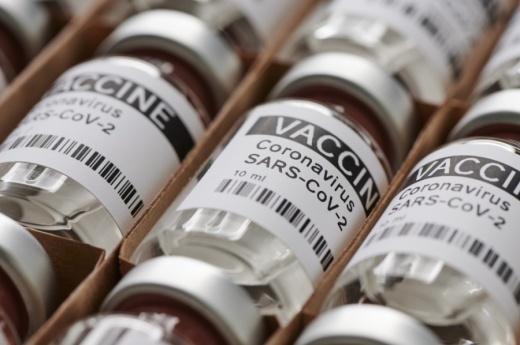If the FDA acts in accordance with the committee's recommendation, the Texas Department of State Health Services would have the green light to begin distribution of its first round of 224,000 doses of the vaccine to health care workers across the state as soon as mid-December.
What is EUA?
The FDA sometimes grants EUA to drugs and vaccines that have the potential to diagnose, treat or prevent illness during public health emergencies when there are no existing, formally approved alternatives.
While vaccine manufacturers must still go through an extensive clinical trial process, the FDA's threshold for an EUA is not as strict as its threshold for formal approval of a drug. The FDA is able to revoke the EUA at any time if significant adverse effects are reported or new information about the treatment’s efficacy comes to light. Last summer, for instance, the FDA revoked EUA previously granted for hydroxychloroquine, a malaria drug that was sometimes used to treat COVID-19, after further results indicated it was not an effective treatment for the novel coronavirus.
Given EUA, Pfizer’s clinical trials would continue. The original trial subjects would continue to be monitored for up to two years to study whether there are any lingering effects from the vaccine, as is typical in vaccine trials.
Eventually, Pfizer’s vaccine would likely gain full approval, pending further trial results. One member of the advisory committee said he wanted to see Pfizer’s vaccine move quickly from EUA to approval through a traditional Biologics License Application, given the vaccine’s high exhibited rate of efficacy.
Findings and discussion points
Representatives from Pfizer and the FDA presented findings from Pfizer’s clinical trials that showed an efficacy rate of 95% in controlled conditions. High efficacy rates held steady across trial groups, including those with conditions such as diabetes, obesity or cardiovascular disease.
In guidance released over the summer, the FDA said efficacy of 50% would be a requirement for authorization for any COVID-19 vaccine.
Recorded side effects from the vaccine, a two-dose shot, were typically mild, with the most common side effect being pain and swelling around the injection site. Several committee members encouraged the FDA to issue specific guidance regarding individuals with severe allergies after reports from the United Kingdom, where the vaccine has already been authorized, of two patients with a history of severe allergies experiencing anaphylaxis as a possible reaction to the vaccine.
Health authorities in the U.K. have also cited four instances of Bell’s Palsy symptoms, or partial facial paralysis, following the vaccine, but an FDA representative said there was no evidence these symptoms were caused by the vaccine, and most symptoms resolved themselves, except in one individual who had a previous history of Bell’s Palsy.
These instances were rare and inconclusive, and FDA representative Susan Wollersheim said the vaccine was found to be generally safe.
Experts in Texas have also expressed confidence in the vaccine's safety, including Dr. Terrance Hines, chief medical officer of University Health Services at The University of Texas at Austin.
"We have faith in the vaccine and the science behind it, in its safety and its effectiveness," Hines said Dec. 8 when announcing a plan to begin local administration of the vaccine at UT Austin.
Other vaccines
The committee is set to consider a COVID-19 vaccine produced by Moderna on Dec. 17. The group will similarly consider results from Moderna's clinical trials and make a recommendation to the FDA regarding EUA. If the FDA were to authorize the Pfizer vaccine and the Moderna vaccine, more than one vaccine could be in circulation, including in Texas. Currently, the United States is only contractually assured 100 million doses of Pfizer's vaccine, enough to vaccinate 50 million Americans. Pfizer representatives have said it may not be able to provide more Americans with vaccines until June, once the initial 100 million doses are administered.





